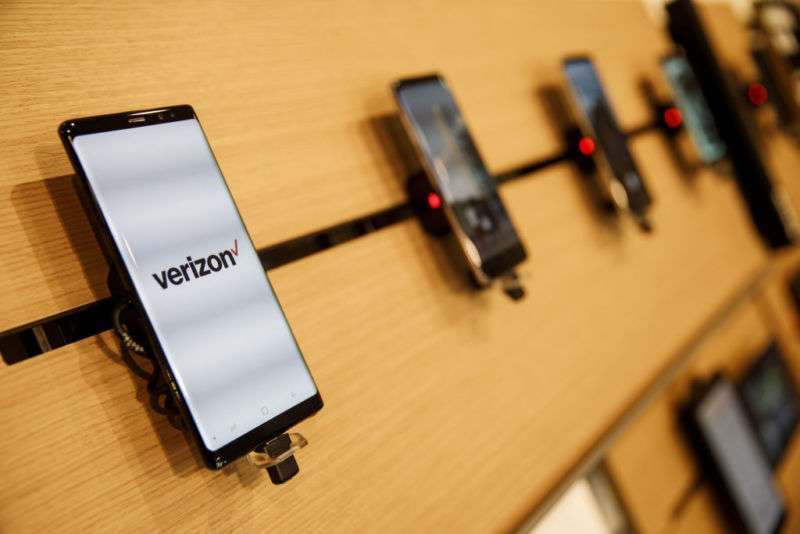
Verizon blames school text provider in dispute over “spam” fee

After being criticized for charging a new fee that could kill a free texting service for teachers and students, Verizon is trying to deflect blame over the possible shutdown.
However, Verizon has backed down from its original position slightly, and ongoing negotiations could allow the free texting service to continue.
As we reported Monday, the dispute involves Verizon and Remind, which makes a communication service used by teachers and youth sports coaches. Verizon is charging an additional fee, saying the money will be used to fund spam-blocking services.
The fee would increase Remind’s costs for sending texts to Verizon users from a few hundred thousand dollars to several million dollars per year, Remind said. Remind said it would absorb the cost in order to continue providing the paid version of its service. But most of Remind’s 30 million users rely on the free version of the service, and Remind said it could no longer provide free text message notifications over Verizon’s network unless the fee is reversed.
Verizon issued an announcement today, titled “App provider Remind threatens to eliminate a free texting service for K-12 education organizations (which will cost it nothing).”
The title reflects a new offer Verizon said it made on Tuesday, which would reverse the fee for K-12 users of the free Remind service.
“Verizon will not charge Remind fees as long as they don’t begin charging K-12 schools, educators, parents and students using its free text message service,” Verizon said. “Despite this offer, made Tuesday, Remind has not changed its position that it will stop sending free texts to Verizon customers who use the service regarding school closures, classroom activities and other critical information.”
Verizon offer doesn’t cover all free users
But limiting the offer to K-12 users means the fee would still be charged for preschools, day-care centers, and youth sports coaches who use the free Remind service. It’s also not clear how K-12 users would verify their K-12 status in order to qualify for the free texting service.
“We’re happy they publicly said they’re rolling [the fee] back,” a Remind spokesperson told Ars today. But Remind wants a commitment that it won’t be charged the fee for all users of its free service.
“Once we are assured that we won’t get charged a fee for all the people using our free service, and we have that in writing and it’s a long-term agreement, then we’ll be thrilled,” the Remind spokesperson told Ars.
In a statement yesterday, Remind said that “Verizon has not signed any agreement with Remind to ensure that fees will be waived for all users of our free service. When we’re assured that a long-term deal is in place to guarantee that all the educators, parents and students currently using our free service can use SMS on the Verizon network without fees, we will be thrilled to continue our service without disruption.”
Remind also said that it “has attempted to negotiate with Verizon for months without any resolution.”
Verizon calls Remind tactics “outrageous”
Negotiations are apparently continuing. Remind previously said it will have to stop offering free text message notifications on Verizon’s network starting January 28 if the fee isn’t reversed.
Remind encouraged its users to contact Verizon, and many did so. Verizon’s announcement today took the same tactic, urging users to “express their concerns directly by contacting Remind.”
“It’s outrageous that Remind is using families, educators and school communities as pawns,” Verizon customer experience executive Aparna Khurjekar said in the Verizon announcement. “No one should need to worry about whether they’ll receive these notifications.”
Verizon says that Remind sends 1.6 billion text messages a year on the Verizon Wireless network. Remind sends its users’ messages through Twilio, a bulk texting service. Remind doesn’t pay Verizon directly, but Verizon is charging the new fee to Twilio for an updated version of Verizon’s commercial long code messaging service. Twilio is passing the new fee along to its users.
“Spam” dispute
Verizon denied that it is treating Remind messages as spam.
“Contrary to Remind’s recent statements, Verizon does not treat educational text messages like spam,” Verizon said. “The company does not charge for spam, it blocks it.”
But in the same announcement, Verizon seemed to blame Remind’s free texting service for spreading spam. “As part of its enhanced text messaging platform, Verizon will continue to give students, parents and educators the special safety and security required by blocking spam and fraudulent activity over the free text messaging service,” Verizon said.
It appears that Remind described the fee accurately when it said that “Verizon is charging Remind an additional fee intended for companies that send spam over its network.” As we noted earlier this week, Verizon said that the fee is charged to “major text-messaging aggregation companies,” and that the fee proceeds “pay for the work required to contain spam and fraud associated with this service.”
Verizon’s claim that the fee is needed to block spam led many teachers to protest directly to Verizon, saying that their messages to students are not spam.
“Thousands of parents and educators who rely on Remind every day and are part of organizations like K-12 schools, preschools, day cares, colleges, churches, and youth organizations across the country have petitioned Verizon to reverse the fee,” Remind’s statement said.




